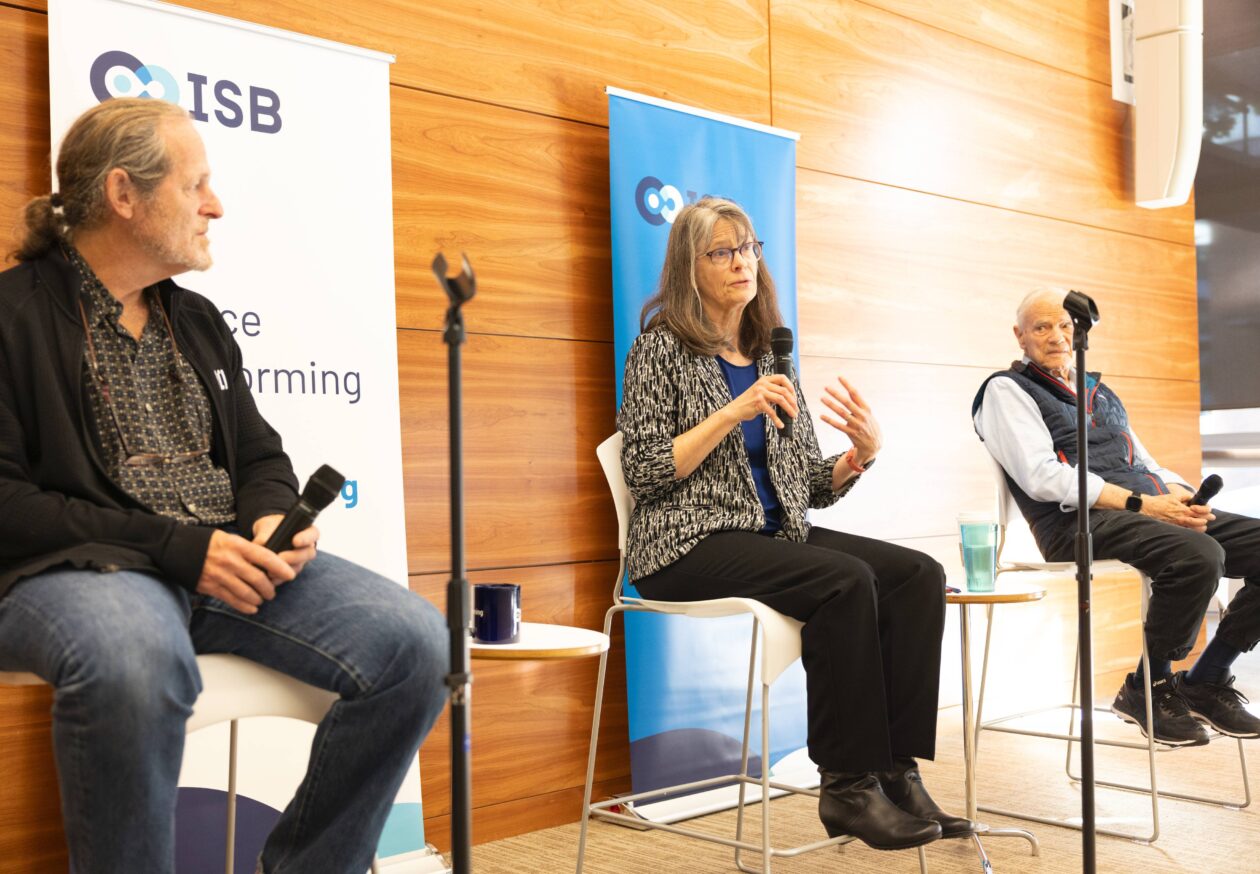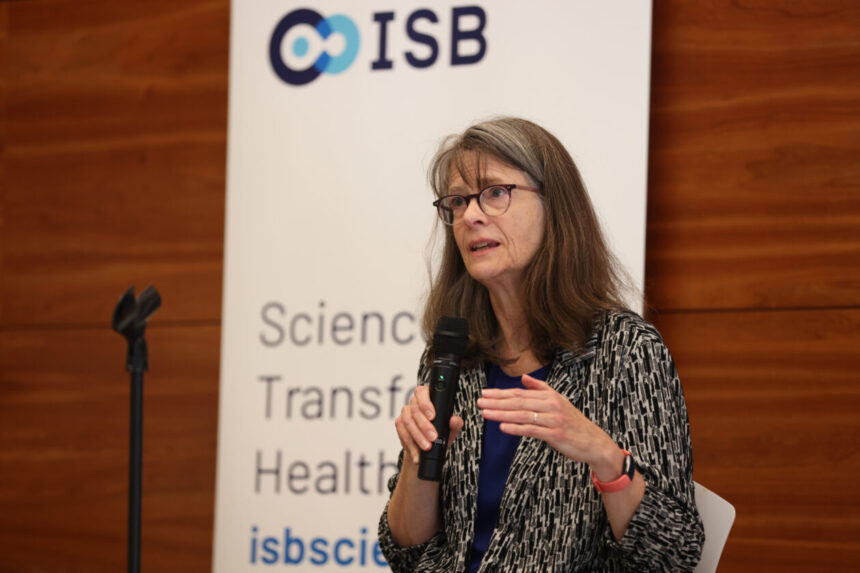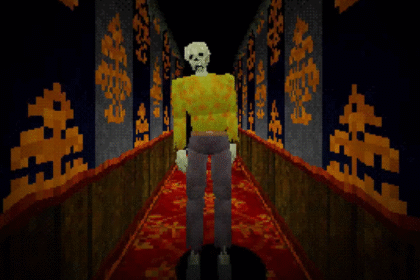The groundbreaking immunology research behind two Nobel Prizes awarded this week traces back to a largely forgotten Seattle-area biotech startup that was backed by Microsoft’s co-founders.
Darwin Molecular launched in 1992, and Mary Brunkow and Fred Ramsdell — who on Monday won Nobel Awards in Physiology or Medicine — joined two years later. Bill Gates and Paul Allen both invested in the Bothell, Wash.-based company, whose team included the star biologist Lee Hood.
At the time, the Human Genome Project was just getting up to speed in sequencing the DNA code that programs humans, and Darwin aimed to clone individual genes from within that master plan. Hood recounted the startup’s efforts at an event Tuesday at Institute for Systems Biology (ISB) that celebrated Brunkow, who is a senior program manager at the Seattle-based nonprofit research organization.
When the company started, there was no complete genome to work from, said Hood, co-founder of ISB. “You had to do it from scratch, and it was an extremely challenging idea,” he added. “And there was enormous skepticism.”
Brunkow recounted her excitement over landing a role at a biotech firm instead of academia.
“We made a great team at this small startup company where we were given the freedom to try different things,” she said. “And it was a really exciting time.”

Brunkow tackled a deadly autoimmune disease in mice, initiating a genetics program to breed the mice and isolate the mutation. The scientists sifted through DNA sequences and ultimately found the gene, which they named FOXP3, and pinpointed the genetic error that caused it to malfunction.
Ramsdell’s team focused on the cell biology and immune system operations in the mutant mice.
After isolating the gene, Brunkow and her team were able to explore new hypotheses about its cellular function, ultimately uncovering new insights into how the immune system regulates and suppresses its own responses.

Brunkow, Ramsdell and Shimon Sakaguchi of Japan’s Osaka University were jointly awarded the Nobel Prize for helping identify regulatory T cells, dubbed the “immune system’s security guards.”
The cells help prevent the body’s immune system from attacking the wrong targets — which if mismanaged can lead to autoimmune diseases such as rheumatoid arthritis, multiple sclerosis, lupus and many others.
The researchers also showed that a mutation in the human version of the FOXP3 gene caused the rare, life-threatening autoimmune disease IPEX.
Brunkow and Ramsdell demonstrated that FOXP3 is “a hallmark” of regulatory T cells, said Jim Heath, president of ISB. “Since that time, this discovery has had an impact in virtually every aspect of human health and disease.”
Ramsdell is the co-founder and chair of the scientific advisory board for Sonoma Biotherapeutics, a company with R&D facilities in Seattle.
Darwin was acquired in 1996 by London-based Chiroscience Group, which three years later merged with another British company, Celltech. The biotech firm ultimately shutdown the R&D operations in Washington state in 2004 — which is when Brunkow and Ramsdell left the company.
“I would still be working on that project because it really was an awesome time and an awesome team,” Brunkow said. “And we knew we were doing something really important in the field.”
RELATED: Seattle scientists Mary Brunkow and Fred Ramsdell win Nobel Prize for immunology research
Read the full article here










